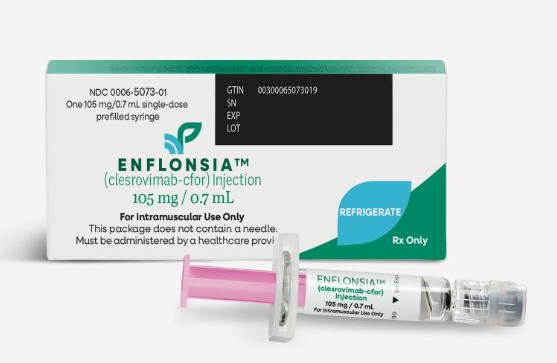On May 20, 2025, the U.S. Food and Drug Administration (FDA) announced that new clinical trials will be required to approve annual COVID-19 booster shots for healthy adults under age 65. In a joint editorial published in the New England Journal of Medicine, FDA commissioner Marty Makary, MD and the director of the FDA’s Center for Biologics Evaluation and Research (CBER) Vinay Prasad, MD questioned the need for annual boosters in populations at low risk for serious complications from COVID disease, citing a lack of clear benefit. “The benefit of annual boosters for healthy adults may not be necessary, suggesting that more evidence is needed to show there are benefits to annual booster shots for low-risk populations,” they wrote.1 2
The article notes that declining public trust in vaccination has triggered a “ripple effect,” leading to a sharp drop in uptake of the annual COVID-19 booster, particularly over the past two years. “Less than 25% of Americans received boosters each year, ranging from less than 10% of children younger than 12 years of age in the 2024–2025 season to 50% of adults over 75 years old,” the authors write. “Even health care workers remain hesitant, with less than one-third participating in the 2023–2024 fall booster program.”2
During a recent presentation to FDA scientists, Dr. Prasad expressed concerns about the long-term use of repeated COVID-19 boosters each year. “At-risk Americans can be reassured that they will be covered by such approvals,” he said. “At the same time, we want more evidence at the FDA. We want to know more about what these products are doing, especially as we enter the seventh, eighth, and ninth dose.”1
>COVID Vaccine Testing Follows Landmark HHS Placebo Trial Requirement
According to Prasad, all COVID shot manufacturers will now be required to conduct placebo-controlled trials in healthy adults aged 50 to 64 and are encouraged to include young children as well. This announcement comes a month after the U.S. Department of Health and Human Services (DHHS) announced a landmark vaccine policy shift that required all newly developed vaccines to undergo placebo-controlled clinical trials before being licensed by the FDA. Historically, randomized clinical trials of new vaccines—which are classified as “biological products”—have included comparison of groups of people who receive the experimental vaccine with groups of people who either receive a “true” inert placebo (like saline) or a bioactive “placebo,” like another vaccine or component of a vaccine, such as an adjuvant.3
Prasad did clarify that the newly required clinical trials of annual COVID shot boosters won’t need to be conducted every year—just when there are significant changes to the virus strains included in the biological product. Pharmaceutical companies, however, have argued that because COVID shots (like annual influenza shots) are updated annually to match circulating strains, requiring placebo-controlled clinical trials could delay their release beyond the point of effectiveness and consumer benefit. 1
Despite Setbacks, Drug Companies See Strong COVID Shot Sales
The latest policy shifts could impact the financial bottom lines for companies marketing COVID shots, particularly as several manufacturers face added setbacks—including federal stop-work orders issued last month by HHS for next-generation COVID biological products, including an oral pill, intranasal vaccine, and a version for immunocompromised patients.1 4
The stop-work orders—which may be issued for reasons such as funding issues, project scope changes, or, in this case, government policy shifts—require contractors to immediately halt all or part of a project for up to 90 days. Beyond the 90 days, the government either lifts the stop-work order, allowing the project to resume, or terminates the contract entirely.4
Still, despite declining demand for COVID biologicals, many of them using mRNA technology, over the past few years, U.S. sales of COVID boosters—primarily from Pfizer and Moderna—exceeded $3.5 billion in 2024. Pfizer said it is in ongoing discussions with the FDA as it reviews the updated guidance for licensure of vaccines. Other companies did not respond to requests for comment.1
On May 1, the DHHS announced a $500 million initiative to develop a universal flu vaccine designed to eliminate the need for annual updates and will provide broader protection against other respiratory infection pandemic threats, including avian flu and respiratory diseases caused by other coronaviruses. The project, called “Generation Gold Standard,” will reportedly rely on “traditional vaccine technology”—an approach some experts have criticized as outdated and insufficient for modern needs.5
New COVID Vaccine Requirements “Take Away Choice,” American Academy of Pediatrics Says
The American Academy of Pediatrics (AAP) expressed concern about the new framework and its potential impact on insurance coverage. “Taking away coverage means taking away choice for families,” said Sean O’Leary, MD chair of the AAP Committee on Infectious Diseases. The AAP’s statement advocating for freedom of choice, differs from the AAP’s prior support for COVID-19 vaccine mandates and its ongoing endorsement of mandatory use of federally recommended childhood vaccines — both of which also limit choice for families.1
Other physicians like David Boulware, MD, an infectious disease specialist at the University of Minnesota, voiced support for the changes, calling them “quite reasonable.” “The really high-risk people—those over 65 or with chronic medical conditions—can still get the vaccine,” he noted.1
According to the published article, the U.S. is the only developed country that recommends yearly COVID shots for healthy adults. Despite the latest policy shift, officials say 100–200 million Americans would still be recommended to receive annual COVID shot boosters, including anyone six months or older with one or more health conditions that places them in the category as being at “high risk” for serious COVID disease outcomes.1
If you would like to receive an e-mail notice of the most recent articles published in The Vaccine Reaction each week, click here.
Click here to view References:1 Erman M. FDA tightens requirements for COVID vaccine, adding trials for healthy adults. Reuters May 20, 2025.
2 Prasad V, Makary M. An evidence-based approach to Covid-19 vaccination. The New England Journal of Medicine, 392(20), 1901–1903.
3 Fisher BL, Baker A. ‘All New Vaccines’ in the U.S. to Undergo Placebo-Controlled Safety Testing. The Vaccine Reaction May 28, 2025.
4 Barnhart M. US halts funding for new COVID-19 vaccines. CEN Apr. 25, 2025.
5 U.S. Department of Health & Human Services. HHS, NIH announce “Generation Gold Standard” to develop a universal flu vaccine. [Press Release]. May 1, 2025.













7 Responses
Too little, too late. Too many are now experiencing health issues post vaccine from organ failure and autoimmune disease to clotting and heart attacks; then there are the increased numbers of miscarriages and fetal demise births. They did their damage across the world, and it was done with purpose.
That last comment is a serious commentary on the USA health status.
Despite the latest policy shift, officials say 100–200 million Americans would still be recommended to receive annual COVID shot boosters.
That is a very sick country.
Probably a mistake to keep injecting Covid “vaccines” especially with less than healthy people.
“Even health care workers remain hesitant.”
Health care workers are the demographic that should be most hesitant, because they understand the deception. Health care workers didn’t get the injections because they wanted to. They were mandated. And many health care students still are. That needs to stop ASAP.
STOP the GENOCIDE that began in ’20
There WAS and STILL is an alternative protocol
that REPUTABLE healthcare providers presented.
However, THEY were shoved aside to enable Big Pharma
While 4 friends died and several more than once infected,
I have yet to have a sniffle in 5+ years.
THEIR common denominator?
ALL fully jabbed
Why in the world would anyone need a COVID-shot?
a universal flu vaccine designed to eliminate the need for annual updates and will provide broader protection against other respiratory infection pandemic threats, including avian flu and respiratory diseases caused by other coronaviruses. The project, called “Generation Gold Standard,” $500 million based on what science or theory? Waste of money.
Note also – the U.S. is the only developed country that recommends yearly COVID shots for healthy adults, and we are the sickest developed country . . . correlation or causation?
I’m very disappointed in Dr. Makary as head of FDA. He knows the danger mRNA technology presents yet he refuses to ban the mRNA vaccines. Yes, I know Big Pharma’s pressure on him and Kennedy, but lives can be saved and that is supposed to be their mission.